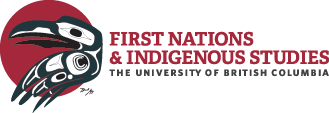The White Paper 1969
…In spite of all government attempts to convince Indians to accept the white paper, their efforts will fail, because Indians understand that the path outlined by the Department of…
Aboriginal Rights
…What are Aboriginal rights? Aboriginal rights are collective rights which flow from Aboriginal peoples’ continued use and occupation of certain areas. They are inherent rights which Aboriginal peoples have…
ILO Convention 169
…framework of the States in which they live.” The Convention guarantees Indigenous peoples the right to participate in decision-making on activities that may impact their own societies and territories, such…
Mapping Tool: Kitsilano Reserve
…False Creek, in what is now Vancouver, British Columbia, was the site of an ancient village known in the Musqueam language, hən’q’emin’əm’, as sən’a?qw and in Skwxwú7mesh as Sen’ákw….
UBC Dialogue: Full Record
…Video Controls TimeCode Chapt ChapterSelect — Chapters — Ceremonial Opening (Evening, Oct 31) Opening Remarks Musqueam welcome; remarks by Linc Kesler, Director of UBC First Nations House of…
Oral Traditions
…and conveyed from generation to generation. Oral traditions form the foundation of Aboriginal societies, connecting speaker and listener in communal experience and uniting past and present in memory.”2 Western discourse…
ILO Convention 107
…protect Indigenous populations from oppression and discrimination. The convention was drafted in the wake of rising concern about human rights following World War II. It is legally binding in the…
Union of British Columbia Indian Chiefs
…The Union of British Columbia Indian Chiefs (UBCIC) is a non-profit political organization representing numerous First Nations across BC in order to protect and further Aboriginal title and rights….
Indian Homemakers’ Association of British Columbia
…Aboriginal peoples. Beginning in the 1930s, the Department of Indian Affairs (DIA) provided small grants to fund homemakers’ clubs on reserves across Canada. These were clubs where women would gather…
Bands
…administering the Indian Act and policies and programs relating to bands, including disbursement of administrative monies, social service programs, and educational programs; band administration is responsible for the day-to-day functioning…

